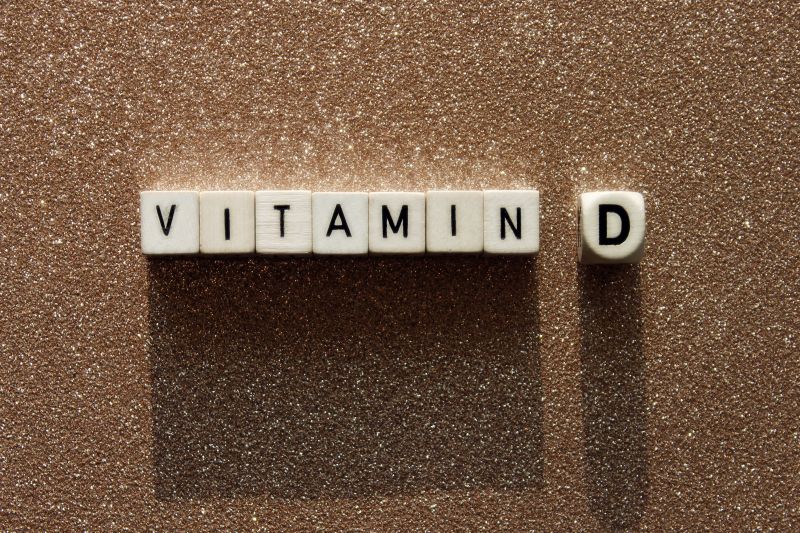Vitamin and minerals are the important nutrients required by our body. Even their required amount for the body is too small but they are vital for normal body functions. Vitamin D is one of those essential nutrients which regulate many functions in the human body. Its deficiency can bring some serious health risks and complications. Let’s have a look to learn more about it
Do You Know Enough About Vitamin D?

Vitamin D is also known as the sunshine vitamin is a fat-soluble vitamin. It is considered an essential nutrient for your body. Vitamin D has two subtypes I,e D2 and D3. Both types have significant importance in the human body as it regulates various human functions. Let’s have a brief detail about its role, deficiency symptoms, and treatment.
Role of Vitamin D
Vitamin D plays an important role in maintaining and regulating different processes in the human body such as
- It increases the absorption of calcium and supports bone health
- It reduces inflammation
- It boosts the immune system
- It helps in new cell growth
- It maintains normal blood pressure and prevents heart disease
- It promotes muscle health
Nutritional Requirement of Vitamin D
It is worth mentioning that 20% of vitamin D requirement is fulfilled through diet and 80% is provided by our skin on exposure to U.V rays. The daily requirement of vitamin D depends on the age of an individual. according to the guidelines, the daily requirement of vitamin D can be given as
- Infants: : 400 IU/day
- 1 to 18 years old: 600 IU/day
- 19 to 70 years old: 600 IU/day
- Older than 71: 800 IU/day
Individuals who take less vitamin D than the above mention recommended value are at risk of having vitamin D deficiency.
Food Rich in Vitamin D

In order to fulfill vitamin D requirements in the body, it is important to consume vitamin D-rich foods along with enough exposure to sunlight. Here is a list of food rich in vitamin D
- Fatty fish such as salmon, tuna, and mackerel
- Beef liver
- Cheese
- Mushrooms
- Egg yolks
- Milk
- Breakfast cereals
- Orange juice
- Other dairy products, such as yogurt
- Soy drinks
Vitamin D deficiency symptoms

Vitamin D regulates many body functions and its deficiency disturbs multiple organs causes the following disorders and diseases
- Frequently catching infections
It is proved by studies that Vitamin D normal levels help in the prevention of upper respiratory tract infections and also limit their severity.
- Muscles weakness and fatigue
Vitamin D is the most important element for bones. Its deficiency can cause muscle and bone weakness. It can also lead to muscle fatigue. Researchers after conducting a study in 2014 concluded that intake of supplementary vitamin D prominently helps to improve fatigue symptoms.
- Joint pain
Vitamin D helps to maintain bone mass and maintain the strength of joints. Its deficiency cause bone and joint pain. Vitamin D deficiency is also reported to increase the risk of rheumatoid arthritis, an inflammatory disease that causes joint pain.
- Fractures
The normal vitamin D levels in the body support the absorption of calcium and thereby maintain bone health. Its deficiency makes this process reverse and results in fragile bones that are at high risk of getting fractures. Especially women are more at a risk of facing fractures and osteoporosis due to vitamin D deficiency.
- Delay in wound healing
Vitamin D regulates growth factors that are responsible for a speedy recovery and wound healing. So vitamin deficiency delays the wound healing and it will take more time to heal than usual.
- Depression
The human brain consists of vitamin D receptors and it acts as a potent anti-inflammatory agent. Researchers concluded after the 2019 review that vitamin D deficiency may increase the risk of depression. So depression linked with Vitamin D deficiency can be managed by taking supplements.
Vitamin D deficiency symptoms in children
In children, vitamin D deficiency is exhibited by the following symptoms
Irritation
- Laziness
- Fractures
- Bone pain
- deformities of the teeth
- developmental delays
Causes of vitamin D deficiency
Vitamin D deficiency can occur due to the following reasons.
- Liver and kidney disease
The liver and kidneys are two vital organs that produce the important enzymes to carry out various processes in the body. When the activity of the liver and kidneys are suppressed due to any disease then it causes to reduces the amount of an enzyme that converts inactive vitamin D into the active form. This leads to vitamin D deficiency.
- Crohn’s disease and celiac disease
Both are diseases that affect the digestive system and do not allow the intestine to absorb vitamin D from dietary supplements. That’s how vitamin D deficiency occurs in the body
- Obesity
Obese people have a low level of vitamin D because Fat cells store vitamin D in them and do not release it freely state. That’s why vitamin D deficiency is more likely to happen in obese people.
- Weight loss surgeries
Weight loss surgeries reduce the size of the stomach and bypass part of the intestine. This makes it so difficult for specific nutrients to get absorbed through it. Individuals who undergo weight-loss surgeries must be carefully monitored by their physician for the levels of essential vitamins and minerals.
- Other factors
Not every time a disease or disorder is responsible for causing vitamin D deficiency, here are some other factors that also contribute to vitamin D deficiency. It includes
- Darker skin
- Insufficient exposure to the sun
- Insufficient consumption of vitamin D in form of diet
- Intake of medicines that interfere with absorption of vitamin D
Treatment
Vitamin D deficiency brings so many health risks and complications and it needs to be treated according to its underlying cause. Treatment and management of its deficiency include the following methods
- More exposure to the sun
As we previously mentioned, vitamin D is an inactive form and it needs enough exposure to become activated. People living in extremely cold countries where the sun does not shine for several weeks experience vitamin D deficiency more severely. It can easily be managed by spending some time in sunlight. It is important to sit in the sun with appropriate intensity otherwise ultraviolet radiation may cause further harm to the skin.
- Dietary supplements
A variety of dietary supplements and multivitamins are available in the market to overcome the nutritional deficiency of vitamin D . These supplements may differ in quality and potency, therefore, it is suggested to ask your physician or pharmacist before starting any supplementary product
- Treat underlying disease
If vitamin D deficiency is caused due to any other medical condition such as Crohn’s disease or fatty liver disease then the underlying disease must be initially treated. It will result in improved symptoms and so as vitamin D deficiency.
How Long Does It Take For Collagen Supplements to Work?
Wrapping up
Vitamin D is an important fat-soluble vitamin for our body. Its deficiency can cause mild to serious symptoms and may end up in complicated medical conditions. Therefore do not take it lightly and consult your doctor to get over it. Get to know best multi-vitamin tablets for women








